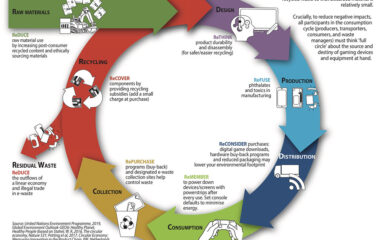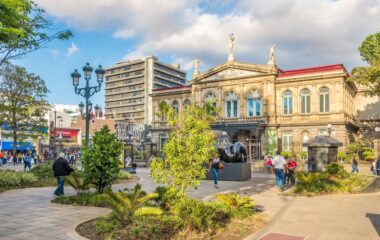
The free trade zone regime in Costa Rica: more than three decades promoting the country
More than 460 companies operate under the free trade zone regime in Costa Rica. Together, they employ more than 164 thousand people.

FDI in El Salvador reached $142 million in the first quarter of 2023
The president of the Central Reserve Bank of El Salvador highlighted that the FDI in El Salvador that has grown the most is the reinvestment of profits, debt instruments, and capital contributions.

Johnson & Johnson MedTech will install a new manufacturing plant in Costa Rica
To transform the current production model and promote economic strengthening, competitiveness, and social well-being in Costa Rica, the National Circular Economy Strategy (ENEC) was recently presented to create a circular economy in Costa Rica.

The adoption of Google Cloud in El Salvador will modernize government operations
The technology company Google Cloud announced on August 29th through a statement that it has reached an agreement with the Salvadoran Government to open an office in the country so that it becomes “a technology center in Central America.”

A National Initiative Aims to Create a Circular Economy in Costa Rica by 2050
To transform the current production model and promote economic strengthening, competitiveness, and social well-being in Costa Rica, the National Circular Economy Strategy (ENEC) was recently presented to create a circular economy in Costa Rica.

The Status of Bitcoin Investment in El Salvador
The Minister of the Economy believes that the reform of the Salvadoran Free Zones Law for food will serve to stimulate the production and use of local inputs.

Investing in Costa Rica with Procomer’s Monica Umaña
We have been the number one trade promotion agency in the world according to the International Trade Center, and we have more than 25 years of experience in the administration of the free zone regime in Costa Rica.

The Salvadoran Free Zones Law for Food: An Examination
The Minister of the Economy believes that the reform of the Salvadoran Free Zones Law for food will serve to stimulate the production and use of local inputs.

FDI in Costa Rica is among world leaders
Of the countries evaluated, three from the Middle East obtain the first position while FDI in Costa Rica leads Latin America and obtains fourth overall place. Costa Rica is the only Latin American country in the Top 10.

The Salvadoran Free Zone Law now includes food production
Earlier this month, the Salvadoran Legislative Assembly approved a reform to the Law on Industrial and Commercial Free Zones to include food production, processing, and commercialization among the sectors receiving preferential tax treatment.

Project Management Services in Costa Rica
This type of industry is very sophisticated, and clients require very complex services. We have understood this for many years ago and have tried to apply some custom-made services or tailor-made services for each of our clients. We don’t limit ourselves only to project management in Costa Rica.

Industry in El Salvador: An Overview
Industry in El Salvador began to develop in the 1950s. Since then, the textile and clothing industry has driven the country’s economy. Other prominent industries include plastics, furniture, food processing, beverage production, consumer goods and packaging, pharmaceuticals, and footwear.

